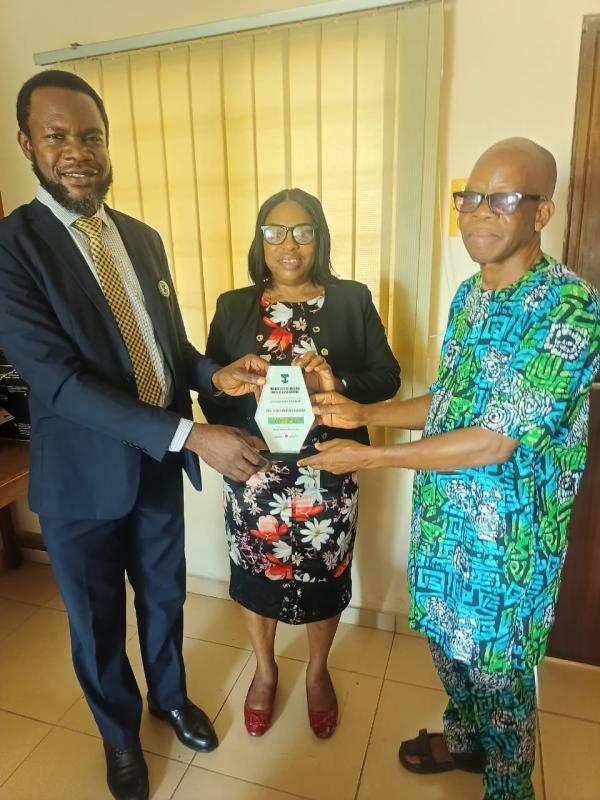
from right: General Secretary, Olayinka Subair, President, Lekan Asuni, Vice President, Femi Soremekun and the Financial Secretary, Kunle Ademola at the press briefing held at Protea Hotel, Ikeja on Wednesday.
Victor Ogunyinka
The Nigerian Representatives of Overseas Pharmaceutical Manufacturers (NIROPHARM) has called on the Federal Government to implement zero per cent importation tariff on raw materials, excipients and packaging.
This was revealed by the president of the body in a press briefing, which recorded attendance from both foreign and local stakeholders at Protea Hotel, Ikeja, Lagos on Wednesday.
The body summarised that to affirm the commitment of improving the wellbeing and wellness of citizens, the Federal Government should stand firm in upholding ECOWAS Common External Tariff (CET), which Nigeria is a signatory.
The President of the Association and Managing Director of GlaxoSmithKline (GSK), Lekan Asuni explained that availability and affordability of drugs are key factors that determine access to essential medicines and health care, which is a fundamental human right.
"Import duties, tariffs and taxes are among the factors that determine the prices of medicine. Hence, the adoption of the CET by the Federal Government, which put zero import duty on medicines is therefore a step in the right direction towards improving access and increasing availability of essential medicines.
"It is important for the Nigerian Government not to give in to blackmail nor be nudged into supporting anti-people policies that will lead to higher prices of medicines, this will put the health of Nigerians in jeopardy and encourage medical tourism," he added.
While responding to questions on the need for improving and supporting local manufacture on production of life saving products and reduction of imported goods, Asuni revelead that NIROPHARM is well in support of local manufacturers and have, as a result, clamoured for zero per cent tax on importation of raw materials.
He added that life saving drugs would be eventually manufactured in Nigeria but stressed that "there are a number of phases the local manufacturers would have to pass through and securing the world Health Organisation (WHO) pre-qualification certificates by some local companies is a step in the right direction."
He however added that government needs to be more determined in making a bold statement on manufacturing life saving drugs in Nigeria by creating a favourable environment for manufacturers.






















